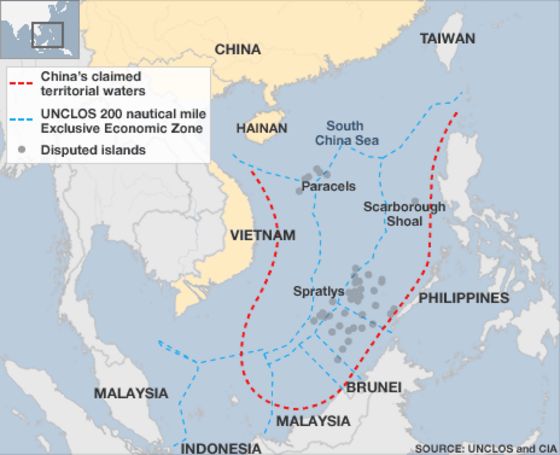The Philippines’ quest for peacefully resolving territorial disputes in the South China Sea has entered a critical stage. After more than two years of hard work and extensive preparations, culminating in the thousand-page-long memorial, Manila has the chance to convince the arbitral tribunal at The Hague that its case deserves to be heard.
.png) |
| CLICK PHOTO to ENLARGE |
The ultimate aim is to ensure all claimant countries honor their treaty commitments under prevailing international legal regimes, particularly the United Nations Convention on the Law of the Sea (UNCLOS), which has been ratified by the Philippines (1984) and China (2006) alike.
The key hurdle, however, is the question of jurisdiction: That is to say, whether the Arbitral Tribunal, formed under the aegis of the UNCLOS, has the mandate to rule on the Philippines’ case against China. We won’t be able to even defend the merit of our case, unless we convince the court that compulsory arbitration is the way forward.
 |
| CLICK MAP to ENLARGE |
What is at stake is not only the merits of the Philippines’ arguments, and the questionable character of China’s sweeping claims, but also the very credibility and viability of international law as the primary arbiter for resolving seemingly intractable territorial spats. This is precisely why the whole international community is anxiously following the ongoing proceedings at The Hague.
A historic case
The Philippines has been praised by nations around the world, because it is the first country to have dared (under Art. 287 and Annex VII of UNCLOS) to take China to the court. Throughout my visits to and interactions with colleagues and officials from sympathetic countries across the Pacific region — and, I must say, there are many of them — I have constantly been told about how they genuinely admire our government’s decision to resort to compulsory arbitration despite China’s vehement opposition.
Though China has refused to engage the legal proceedings, claiming “inherent and indisputable” sovereignty over almost the entire South China Sea, the UNCLOS (under Art. 9, Annex VII) has not barred the resumption of our arbitration efforts, which kicked off in early 2013. Without a doubt, the Aquino administration has made a very bold decision by taking on China directly — albeit not through force, but instead the language of law.Read the rest of the story HERE.
If you like what you see, please "Like" us on Facebook either here or here. Please follow us on Twitter here.




No comments:
Post a Comment